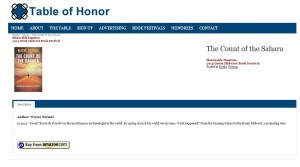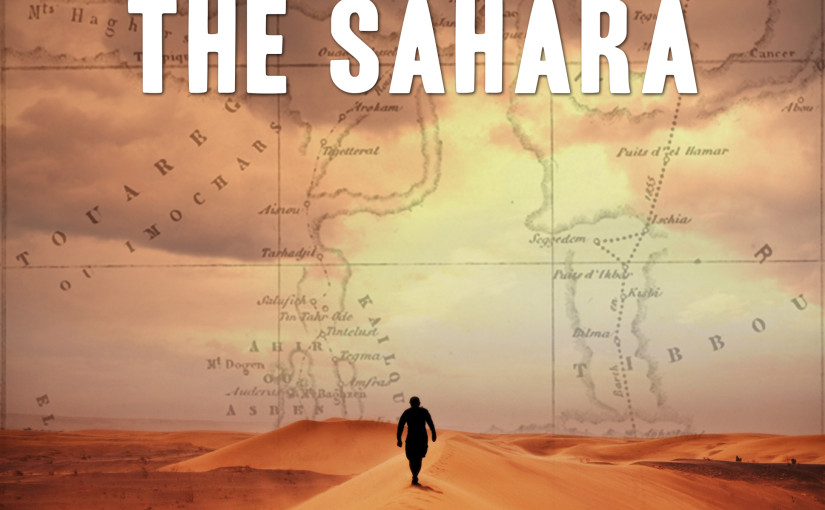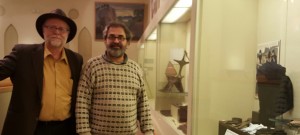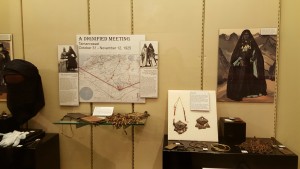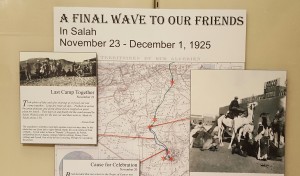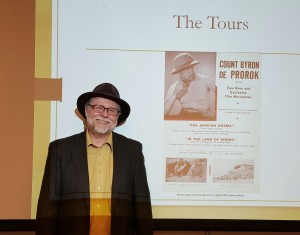Every human being sees history through their own eyes, but too often readers get to see it from essentially one side… a cynic would say the winners’, but more likely those who write primarily for an English speaking audience. However, we all know any time human beings are involved, everyone has their own take. That’s what makes historical fiction so fascinating. Case in point… when was the last time you read about a WWII battle from the German side?
Christoph Fromm studied at the film academy (Hochschule für Film und
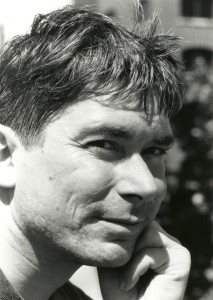
Fernsehen) in Munich from 1977 to 1981. He has worked as a full-time screenwriter since 1983. He started early with writing prose alongside his work on screenplays.
In 1984 he published the short story collection “Der kleine Bruder”. After working on several movie and television screenplays, he founded the publishing house Primero Verlag together with children’s books author Tina Lizius in 2006. In the same year he published the political thriller “Die Macht des Geldes”. In 2013 he published his novel “Stalingrad: The Loneliest Death” which was a great success. In 2015 it was translated into English.
His third novel “Amoklauf im Paradies” will be published in spring 2016.
In a nutshell, what’s the book about?
In September 1942, the few survivors of a Sturmpionierbataillion stationed in Northern Africa are sent to the Eastern front. During the decisive battle of Stalingrad – which claimed more than two million victims – the soldiers lose all their moral inhibitions and confronted by trench warfare, close combat for every single house, hunger and arctic cold, madness is their only remaining refuge before dying anyway…
Young lieutenant Hans von Wetzland is forced to recognise that these conditions do not allow him or his soldiers to stick even to the most basic moral principles.
What is it about that time period or character that intrigued you and motivated you to write about it?
My novel is based on extensive research in the course of which I was also able to talk to numerous contemporary witnesses. I was especially fascinated by the letters from my mother’s former fiancé who was stationed at the Eastern front as a lieutenant of the German general staff, later as an artillery captain, and who went missing in action in February 1945. It is alarming to recognise how contemporary his longing for personal happiness, romance, and his escape into religious, conservative, apolitical areas appears.
What interested me most about my fictive protagonist was his transformation from a war romantic to a war defector. The cauldron of Stalingrad shocked me with its existential and extreme situations. The vast majority of the soldiers could not remain human under these inhuman conditions, but were overpowered by madness which did not even stop at cannibalism and taking the law into their own hand.
Stalingrad was a nightmare for all participants, although most Americans know little about it. What’s your favorite scene in the book (without giving away any spoilers)?
That would be chapter 48 in which the soldiers are demoted and have to shovel snow off a street inside the cauldron of Stalingrad. When they are completely exhausted and finally achieve their target for the day, they recognise that the murderous strain was completely in vain as they cleared this street only because of an administrative error.
Where can people learn more about you and your work?
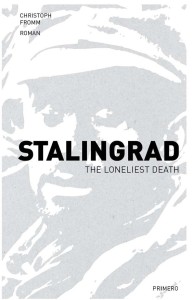
You can find my eBook on Amazon and if you have a Kindle Unlimited account it is also available for lending.
I am also on Goodreads and Library Thing.
You can find more information (only in German) about me and my publisher at
https://www.facebook.com/primeromuenchen

